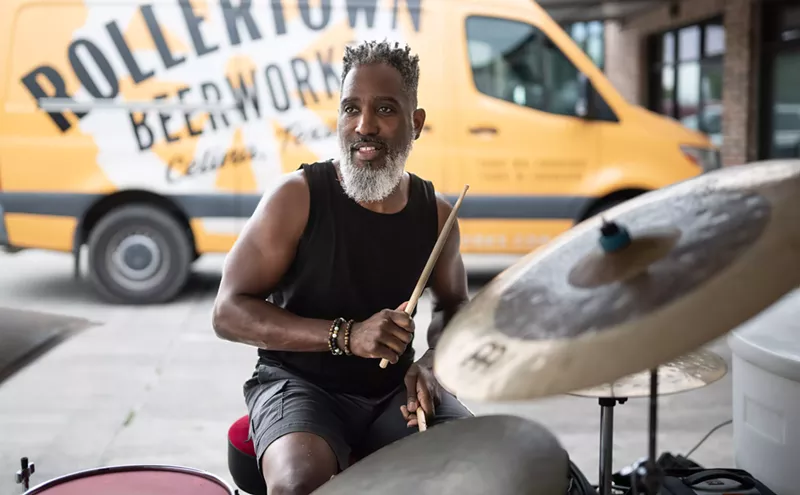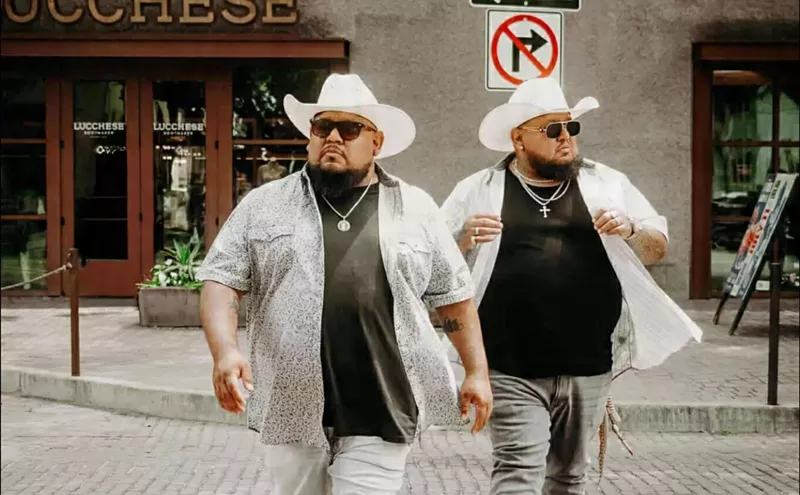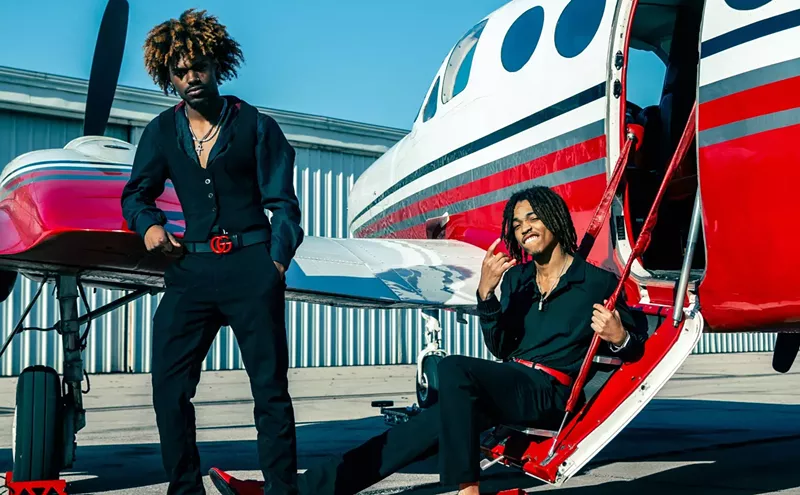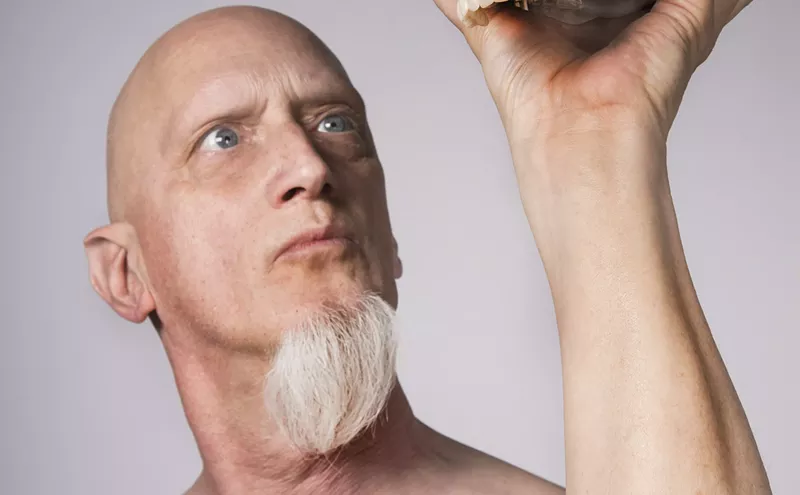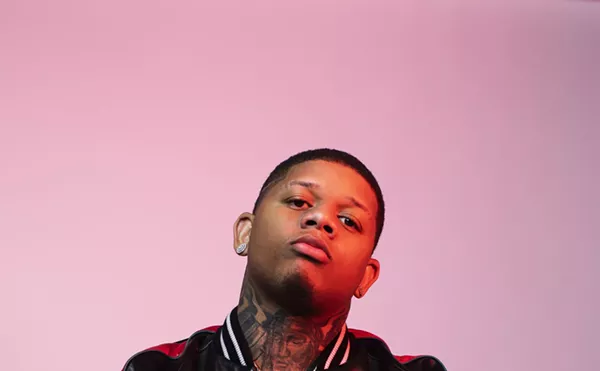Dallas Observer Mixtape #75: DJ Love by DC9 at Night Mixtape on hearthis.at
Dallas Observer: How did you get started DJing? How long have you been at it?DJ Love: DJing came to me as an alternative way to make or manipulate music. I went to my first underground club in 1987. I had heard some dance music, but it was mostly mainstream or radio hits. Once I heard the music being played in clubs like The Edge in Norman, Oklahoma, or The Wreck Room in Oklahoma City, I knew that was the kind of music I wanted to make. I didn’t quite know what it was, I just knew I wanted to make it. The problem was I didn’t have the money to buy gear. I was, however, able to afford to buy the records of the songs I liked. In 1988, I borrowed a Radio Shack mixing board, a belt-driven turntable and a drum machine from a friend. I took the a cappella of Information Society’s “What’s on Your Mind (Pure Energy)” and timed it with a beat I made on the drum box. I recorded it and thought I had made my first “remix.”
What did you do from there?
It then occurred to me that if I could match the tempo of a drum machine to a record, I could probably match the tempos of two records. So, I went to this teen club I frequented called Club Elite in my hometown of Lawton, Oklahoma. I was friends with the DJ and I told him what I discovered. He opened the booth door, put me on the decks and basically just handed me the wheels. Literally, he said he was moving back to Puerto Rico so I could have the job, then turned around and started organizing records. I was totally surprised and nervous, but, lo and behold, I just started mixing. He showed me the crossfader, said, “Wait for the breaks ... mix then," and that was it. It came natural to me. So basically, my first gig was the first time I had ever DJed.
Once you'd started DJing, what did you do?
I DJed from 1988 to 1994 before I actually acquired my own turntables and mixer, which I still have to this day. I spun there for a bit then moved to an R&B club across town playing nothing but new jack swing. During all of this, I kept building my collection of house and electronic music. In 1991 I moved to Norman and started a scene there DJing at a place called Rome XC. It was a bar with two sides. One side had live bands and the other side was a dance club. I was very lucky to get booked in LA for some raves there, so I came back and threw the first documented rave in Oklahoma in October of 1992. With that I built up a following, and with my good friend Patrick Johnson, we took the money from the raves and we remodeled the dance side and named it The Qube. That’s when things really took off.
How did you start getting involved with Dallas DJ culture?
In 1994, some friends and I came down to a rave here in Dallas, which we did quite often. While we were heading back to Oklahoma, we stopped at a gas station. A girl and her friend had a van with a flat tire so we helped them change it. I told her I was a DJ and she said she’d tell her friend about me. A few weeks later, I get a call and get booked for my first rave in Dallas. I thought it was odd because I’m not sure if I even left a tape or anything with her. Matt Pruitt, aka DJ 4-Peace, and Joel Alamo booked me. My friends and I were super excited. We took two carloads of people down and when we arrived, the place wasn’t very busy at all. I met with the promoters and they let me on the decks. Recalling from 4-Peace’s account, he and Joel were outside of the room and they heard my set. I was one of the few hip-hop DJs in the rave scene so I scratched in all my sets. 4-Peace said he thought it was part of the song, but when he realized it was me, he and Joel came and watched the whole set. After it was done, they apologized that they could only give me $35 to get back home, but said they would book me for every party moving forward. They stayed true to their word and my name started getting around. I started getting booked at a lot of other raves and parties from 1994 to well after I moved here in 1997.
How was this mix made? Is there a particular theme for the track selection?
This mix was made the classic way: Press record and start mixing with all 100 percent vinyl. The mix comprises several breakbeat and funky-breaks tracks I’m very fond of but have rarely played out, if at all. Some of the tracks are fairly new and some are pretty old. I wanted to get these particular songs recorded and exposed to listeners who may not know what breakbeat music is about or might have the wrong idea of what breaks are in general. I actually avoided scratching in this set because I wanted all the songs to speak for themselves for any new listeners of either the breaks genre or the individual tracks.
What is your relationship with breaks?
When I first got into dance music, I started to realize that I was really drawn to songs that had breakbeat loops and vocal samples in them, mainly because it had a hip-hop influence. Whenever I would hear that influence in something outside of hip-hop, it was magnetic. Late '80s artists like Simon Harris, Bomb the Bass, Coldcut, Richie Rich, those were the guys that really had an effect on my style. I started out playing house and in the early '90s began playing hardcore and then jungle. I bought all kinds of records from many genres, but when I would hear electronic music that had a funk, reggae or hip-hop style, it just really appealed to me.
What do you like about it exactly?
I find breaks to be really fun and more of a challenge to mix. I also like the funk aspect of broken beats. When you listen to a lot of funk from the '70s most of the drum patterns are broken and a lot of the drums are still being sampled today in hip-hop and all types of electronic music. In the mid-to-late '90s, I wanted to focus more on the dance floor. I moved from playing ever-increasing fast tempos of drum and bass and transitioned down to the tempo of house music. During all of my time as a DJ I have always played hip-hop and scratched. Breakbeat, to me, was a marriage of house and hip-hop. It allowed me to play the classic sounds of hip-hop and house, scratch, and play at a good tempo for the dance floors.
Who are some of your favorite old school DJs or producers?
Wow. So many to name. My heroes are usually my friends. Going back to who really influenced me when I first started, it was DJs like Robert Taylor, Robert Vaughan, EZ Eddie D, DJ Baby G, A1, JT Donaldson, Redeye. As DJs, I really looked up to those guys back then and still do. As far as producers, two of my biggest influences in hip-hop are DJ Premier of Gang Starr and Pete Rock. I’ve been a fan of them for years and nothing has really changed about that. They are the epitome of boom-bap and I love that sound. It has been quite instrumental in the development of my style. Other favorite producers are Skeewiff, All Good Funk Alliance, Fort Knox Five, Qdup and Gramatik.
Do you still buy vinyl? If so, do you have a favorite record store, online or storefront?
I still buy records. I only play 100 percent vinyl and have never owned Serato or anything like that, so I still do old-fashioned digging. I go to Josey Records a lot, but I also buy records on Discogs.com and Juno Records.
How did you get involved in production?
After DJing for six years, I finally got an opportunity to build my first recording studio. I’m a classically trained pianist and violinist since I was 7 and 9 years old, respectively. I’m also a drummer and guitar player and collector. Music has always been part of my life. As I said earlier, being a DJ was a surprise because what I really wanted to do was produce music. In 1994 I purchased a Kurzweil K2000S with some monitors and sequencing software. I wrote drum and bass, house, hip-hop, breaks, down-tempo and other different styles of electronic music. It took me about three years to learn to produce and finish several songs before I felt like I was truly ready to release something. I moved to Dallas in 1997 to further my design career and start my record label, Stellar Music. I put out my first record that year and still put out music on Stellar Music now. I also released music on Air Recordings in the UK. So far I’ve remixed and produced tracks for local favorites such as Kelly Reverb, Infored and the ELZE, as well as international artists including Skeewiff, Dub Pistols, Camp Lo, Special Ed, Outerspace, Fort Knox Five, Qdup Foundation, Wes Smith, Ursula 1000 and others.
Do you have a preference between production and DJing?
DJing has had such a huge and positive impact on my life. It helped me find myself, build confidence and meet some of the most amazing people in the world. Producing helped me travel the globe, do a lot more with DJing and meet more amazing people. DJing, however, has the advantage of instant feedback and gratification. You get to see someone’s reaction to songs and interact with them. The one thing about DJing is I am well aware I’ve become the DJ I am mainly because of other people’s music. So, while I am a producer, musician and DJ, I am able to separate and be on the receiving end of the magic that their music creates. I enjoy hearing others' music as much as I love spinning it.
What gigs do you have in the near future?
I have a breaks night coming up on February 6 and every first Saturday at Red Light. It has a history that started in the video bar at The Lizard Lounge, moved to Zubar. Once that closed it moved to The Crown & Harp, and now full circle back at Red Light in Deep Ellum. I consider it full circle because the same guys that hired me to work at The Lizard Lounge back in 1998 have given me my monthly at Red Light. The show is always broadcast live at ustream.tv.
Tracklist:
1. Bass-Funk-Sion “Push The Tempo (Ritchies Fat Club Mix)” - Fat N’ Round
2. Omegaman - “Disco Love (Feature Cast Remix)” - Super HI-FI
3. DJ Wood - “Eye No” - Goodgroove Records
4. DJ Rudd - “Shake It Out” - Breakbeat Paradise Recordings
5. Dedydread & DJ Rebel - “Jah Mambo” - Wack Records
6. The Fort Knox Five - “Brazilian Hipster (Skeewiff Remix)” - Jalapeno Records
7. Flying Fish - “Grandstand Theme (Re-Work)” - Skyline Recordings
8. Hero No. 7 - “Keeping It Real? (Mash & Munkee Remix)” Hero Records
9. Aldo Vanucci - “Es Simplemente El Robo” - BSTRD Boots
10. Skeewiff - “Lost Due To Incompetence” - Jalapeno Records
11. Sampology - “Back on the Drums” - Goodgroove Records
12. Meh Deus - “Soultime” - Big M Productions
13. Max Sedgley feat. Tasita D'Mour - “Superstrong (Basement Freaks Remix) - Jalapeño Records



